- Home
- Lynne Reid Banks
The Indian in the Cupboard Page 4
The Indian in the Cupboard Read online
Page 4
“Little Bear,” he said clearly, “we’re outdoors now. I’m going to let you out to ride. But remember—you’re not on a prairie now. There are mountain lions here, but they’re big enough to swallow you whole and the horse too. Don’t run away, you wouldn’t survive. Do you understand?”
Little Bear looked at him steadily and nodded. Omri opened the flap and Indian and horse stepped out into the morning sunlight.
The Great Outdoors
Both horse and man seemed to sniff the air, tasting its freshness, and testing it for danger at the same time. The horse was still making circles with his nose when Little Bear sprang onto his back.
The horse, startled, reared slightly, but this time Little Bear clung onto his long mane. The horse’s front feet had no sooner touched the path than he was galloping. Omri leaped to his feet and gave chase.
The horse’s speed was remarkable, but Omri found that by running along the lawn beside the path he could keep up quite easily. The ground was dry and as Indian and horse raced along, a most satisfying cloud of dust rose behind them so that Omri could easily imagine that they were galloping across some wild, unbroken territory.
More and more, he found, he was able to see things from the Indian’s point of view. The little stones on the path became huge boulders that had to be dodged, weeds became trees, the lawn’s edge an escarpment twice the height of a man. As for living things, an ant, scuttling across the horse’s path, made him shy wildly. The shadow of a passing bird falling on him brought him to a dead stop, crouching and cowering as a full-sized horse might if some huge bird of prey swooped at him. Once again, Omri marveled at the courage of Little Bear, faced with all these terrors.
But it was not the courage of recklessness. Little Bear clearly recognized his peril, and, when he had had his gallop, turned the horse’s head and came trotting back to Omri, who crouched down to hear what he said. (This was much more difficult in the open air, somehow.)
“Danger,” said the Indian. “Much. I need bow, arrows, club. Maybe gun?” he asked pleadingly. Omri shook his head. “Then Indian weapons.”
“Yes,” said Omri. “You need those. I’ll find them today. In the meantime we’d better go back in the house.”
“Not go shut-in place! Stay here. You stay, drive off wild animals.”
“I can’t. I’ve got to go to school.”
“What school?”
“A place where you learn.”
“Ah! Learn. Good,” said Little Bear approvingly. “Learn law of tribe, honor for ancestors, ways of the spirits?”
“Well … something like that.”
Little Bear was clearly reluctant to return to the house, but he had the sense to realize he couldn’t cope outside by himself. He galloped back along the path, with Omri running alongside, and, dismounting, re-entered the carton.
Omri was just carrying it up the back steps when the back door suddenly opened and there was his father.
“Omri! What on earth are you doing out here in your pajamas? And nothing on your feet, you naughty boy! What are you up to?”
Omri clutched the box to him so hard in his fright that he felt the sides bend and quickly relaxed his hold. He felt himself break into a sweat.
“Nothing—I—couldn’t sleep. I wanted to go out.”
“What’s wrong with putting on your slippers, at least?”
“Sorry. I forgot.”
“Well, hurry up and get dressed now.”
Omri rushed upstairs and, panting, laid the box on the floor. He opened the flap. The horse rushed out alone, and stood under the table, whinnying and trembling—he had had a rough ride. Full of foreboding, Omri bent down and peered into the box. Little Bear was sitting in a corner of it, hugging his leg, which Omri saw, to his horror, was bleeding right through his buckskin leggings.
“Box jump. Horse get fear. Kick Little Bear,” said the Indian, who, though calm, was clearly in pain.
“Oh I’m sorry!” cried Omri. “Can you come out? I’ll see what I can do.”
Little Bear stood up and walked out of the box. He did not let himself limp.
“Take off your leggings—let me see the cut,” said Omri.
The Indian obeyed him and stood in his breechcloth. On his tiny leg was a wound from the horse’s hoof, streaming blood onto the carpet. Omri didn’t know what to do, but Little Bear did.
“Water,” he ordered. “Cloths.”
Omri, through his panic, forced himself to think clearly. He had water in a glass by his bed, but that would not be clean enough to wash a wound. His mother had some Listerine in her medicine cupboard; when any of the boys had a cut she would add a few drops to some warm water and that was a disinfectant.
Omri dashed to the bathroom, and with trembling hands did what he had seen his mother do. He took a small piece of cotton wool. What could be used as a bandage he had no idea at all. But he hurried back with the water, and poured some into the Action Man’s mess tin. The Indian tore off a minute wisp of cotton wool and dipped it into the liquid and applied it to his leg.
The Indian’s eyes opened wide, though he did not wince. “This not water. This fire!”
“It’s better than water.”
“Now tie,” said the Indian next. “Hold in blood.”
Omri looked around desperately. A bandage small enough for a wound like that! Suddenly his eyes lighted on the biscuit tin. There, lying on top, was a First World War soldier with the red armband of a medical orderly. In his hand was a doctor’s bag with a red cross on it. What might that not contain if Omri could make it real?
Not stopping to think too far ahead, he snatched the figure up and thrust it into the cupboard, shutting the door and turning the key.
A moment later a thin English voice from inside called: “Here! Where am I? Come back, you blokes—don’t leave a chap alone in the dark!”
Tommy
Omri felt himself grow weak. What an idiot he’d been, not to have realized that the man and not just the medical bag would be changed! Or had he? After all, what did he need more just then than a bandage of the right size for the Indian? Someone of the right size to put it on! And, unless he was sadly mistaken, that was just what was waiting inside the magic cupboard.
He unlocked the door.
Yes, there he was—pink-cheeked, tousle-headed under his army cap, his uniform creased and mud-spattered and blood-stained, looking angry, frightened, and bewildered.
He rubbed his eyes with his free hand.
“Praise be for a bit of daylight, anyway,” he said. “What the—”
Then he opened his eyes and saw Omri.
Omri actually saw him go white, and his knees gave way under him. He uttered a few sounds, half curses and half just noises. He dropped the bag and hid his face for a moment. Omri said hastily:
“Please don’t be afraid. It’s all right. I—” Then he had an absolute inspiration! “I’m a dream you’re having. I won’t hurt you, I just want you to do something for me, and then you’ll wake up.”
Slowly the little man lowered his hands and looked up again.
“A dream, is it? Well … I should’ve guessed. Yes, of course. It would be. The whole rotten war’s nightmare enough, though, without giants and—and—” He stared around Omri’s room. “Still and all, perhaps it’s a change for the better. At least it’s quiet here.”
“Can you bring your bag and climb out? I need your help.”
The soldier now managed a rather sickly smile and tipped his cap in a sort of salute. “Right you are! With you in a tick,” he said, and picking up the bag, clambered over the edge of the cupboard.
“Stand on my hand,” Omri commanded.
The soldier did not hesitate a moment, but swung himself up by hooking his free arm around Omri’s little finger. “Bit of a lark, this,” he remarked. “I won’t half enjoy telling the fellows about this dream of mine in the trenches tomorrow!”
Omri carried him to the spot where Little Bear sat holding his leg, whic
h was still bleeding. The soldier stepped down and stood, knee deep in carpet pile, staring.
“Well I’ll be jiggered!” he breathed. “A bloomin’ Indian! This is a rum dream, and no mistake! And wounded, too. Well, I suppose that’s my job, is it?—to patch him up?”
“Yes, please,” said Omri.
Without more ado, the soldier put the bag on the floor and snapped open its all-but-invisible catches. Omri leaned over to see. Now he really did need a magnifying glass, and so badly did he want to see the details of that miniature doctor’s bag that he risked sneaking into Gillon’s room (Gillon always slept late, and anyway it wasn’t seven o’clock yet) and pinching his from his secret drawer.
By the time he got back to his own room, the soldier was kneeling at Little Bear’s feet, applying a neat tourniquet to the top of his leg. Omri peered through the magnifying glass into the open bag. It was amazing—everything was there, bottles, pill boxes, ointments, some steel instruments including a tiny hypodermic needle, and as many rolls of bandages as you could want.
Omri then ventured to look at the wound. Yes, it was quite deep—the horse must have given him a terrific kick.
That reminded him—where was the horse? He looked around in a fright. But he soon saw it, trying forlornly to eat the carpet. “I must get it some grass,” thought Omri, meanwhile offering it a small piece of stale bread, which it ate gratefully, and then some water in a tin lid. It was odd how the horse was not frightened of him. Perhaps it couldn’t see him very well.
“There now, he’ll do,” said the soldier, getting up.
Omri looked at the Indian’s leg through his magnifying glass. The wound was bandaged beautifully. Even Little Bear was examining it with obvious approval.
“Thank you very much,” said Omri. “Would you like to wake up now?”
“Might as well, I suppose. Not that there’s much to look forward to except mud and rats and German shells coming over. … Still, got to win the war, haven’t we? Can’t desert, even into a dream, not for long, that is—duty calls and all that, eh?”
Omri gently picked him up and put him into the cupboard.
“Good-by,” he said. “Perhaps, sometime, you could dream me again.”
“A pleasure,” said the soldier cheerfully. “Tommy Atkins, at your service. Any night, except when there’s an attack on—none of us gets any sleep to speak of then.” And he gave Omri a smart salute.
Regretfully Omri shut and locked the door. He was tempted to keep the soldier, but it was too complicated just now. Anyway, he could always bring him back to life again if he liked … A moment or two later he opened the door again to check. There was the orderly, bag in hand, standing just as Omri had last seen him, at the salute. Only now he was plastic again.
Little Bear was calmly pulling on his blood-stained leggings.
“Good magic,” he remarked. “Leg feel good.”
“Little Bear, what will you do all day while I’m at school?”
“You bring bark of tree. Little Bear make longhouse.”
“What’s that?”
“Iroquois house. Need earth, stick posts in.”
“Earth? Posts?”
“Earth. Posts. Bark. Not forget food. Weapons. Tools. Pots. Water. Fire—”
There were no quarrels at breakfast that morning. Omri gulped down his egg and ran. In the greenhouse he found a seed tray already full of soil, well pressed down. He carried that secretly upstairs and laid it on the floor behind the dressing-up crate, which he was pretty sure his mother wouldn’t shift even if it was her cleaning day. Then he took his penknife and went out again.
Fortunately one of the trees in the garden had the sort of bark that came off easily—a silvery, flaky kind. He cut off a biggish strip, and then another to make sure. (How long was a longhouse?) He pulled some grass for the horse. He cut a bundle of thin, strong, straight twigs and stripped off their leaves. Then he went back to his room and laid all these offerings beside Little Bear, who was seated outside his tepee, apparently saying his prayers.
“Omri!” came his mother’s call from downstairs. “Time to go!”
Omri took out of his pocket the corner of toast he’d saved from breakfast and cleaned out the last of the corned beef from the tin. There was some corn left as well, though it was getting rather dry by now. He filled up Action Man’s beaker with water from the bathroom, pouring a little into the horse’s drinking lid. The horse was munching the fresh grass with every sign of enjoyment. Omri noticed its bridle had been replaced with a halter, cleverly made of a length of thread.
“Omri!”
“Just coming—”
“The others have gone! Hurry up, you’ll be late!”
One last thing! Little Bear couldn’t make a longhouse without some sort of tool beside his knife. He’d need an ax. Frantically Omri rummaged in the biscuit tin. Ah! A knight, wielding a fearsome-looking battle-ax! It wasn’t right, but it was better than nothing and would have to do. In a second the knight was locked in the cupboard.
“Omri!”
“One second!”
“What are you doing?”
Crash! The ax was being used on the inside of the cupboard door!
Omri wrenched it open and snatched the ax from the startled hands of the knight, who had just time for one horrified look before he was reduced to plastic again by the slamming of the door. Never mind! He had looked most unpleasant, just as knights must have looked when they were murdering the poor Saracens in Palestine. Omri had very little time for knights.
The ax was a beauty, though! Shining steel, with a sharp edge on both sides of the head, and a long, heavy steel handle. Omri laid it at Little Bear’s side.
“Little Bear—”
But he was still in a trance—communicating with his ancestors, Omri supposed. Well, Little Bear would find everything when he came to. There was quite a trail of spilt earth leading behind the crate. Omri flashed down the stairs, grabbed his parka and his lunch money, and was gone.
The Chief Is Dead, Long Live the Chief
He got to school early by running all the way. The first thing he did was to head for the school library shelves for a book on Indians. And to his joy, he soon found one, under the section labeled “Peoples of the World”—a book called On the Trail of the Iroquois.
He couldn’t take it out because there was nobody there to write him down for it; but he sat down then and there on a bench and began to read it.
Now, Omri was not what you’d call a great reader. He couldn’t get into books, somehow, unless he knew them already. And how, as his teacher never tired of asking, was he ever going to get to know any more books until he read them for the first time?
And this On the Trail of the Iroquois was not exactly a comic. Tiny print, hardly any pictures, and no fewer than three hundred pages. “Getting into” this was obviously out of the question, so Omri just dipped.
He managed to find out one or two fairly interesting things straight away. Iroquois Indians were sometimes called “The Five Nations.” One of the five were the Mohawks, a tribe Omri had heard of. They had indeed lived in longhouses, not tepees, and their main foods had been maize and squash (whatever they were) and beans. These vegetables had, for some strange reason, been called “The Three Sisters.”
There were many mentions of the Algonquins as the Iroquois’ enemies, and Omri confirmed that the Iroquois had fought beside the English while the Algonquins fought for the French sometime in the 1700s, and that both sides had scalped like mad.
At this point he really began to get interested. The book, in its terribly grown-up way, was trying to tell him something about why the Indians had done such a lot of scalping. Omri had always thought it was just an Indian custom, but the book seemed to say that it wasn’t at all, at least not till the white man came. The white man seemed to have made the Iroquois and the Algonquin keen on scalping each other, not to mention white men, French or English as the case might be, by offering them money and whiskey a
nd guns. … Omri was deep in the book, frowning heavily, several minutes after the bell had rung. Someone had to tap him on the shoulder and tell him to hurry in to Assembly.
The morning lasted forever. Three times his teacher had cause to tell Omri to wake up. At last Patrick leaned over and whispered, “You’re even dreamier than usual today. What’s up?”
“I’m thinking about your Indian.”
“Listen,” hissed Patrick. “I think you’re putting me on about that Indian. It was nothing so marvelous. You can buy them for a few pence in Yapp’s.” (Yapp’s was their local news agent and toyshop.)
“I know, and all the equipment for them! I’m going shopping at lunchbreak. Are you coming?”
“We’re not allowed out of school at lunch unless we eat at home, you know that!”
“I’m going anyway. I’ve got to.”
“Go after school.”
“No, I’ve got to go home after school.”
“What? Aren’t you staying to skateboard?”
“Omri and Patrick! Will you kindly stop chattering?”
They stopped.
At long last lunchtime came.
“I’m going. Are you coming?”
“No. There’ll only be trouble.”
“I can’t help that.”
“You’re a twit.”
Twit or not, Omri sneaked out, ran across the playground, through a hole in the fence (the front gate was kept locked to keep the infants from going in the road), and in five minutes, by running all the way, he had reached Yapp’s.
The selection of plastic figures there was good. There was one whole box of mixed cowboys and Indians. Omri searched till he found a chief wearing a cloak and a full feather headdress, with a bow in his hand and a quiverful of arrows slung across his back. Omri bought it with part of his lunch money and rushed back to school before he could be missed.

 Two Is Lonely
Two Is Lonely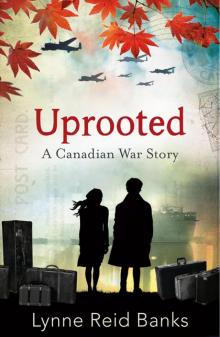 Uprooted - a Canadian War Story
Uprooted - a Canadian War Story The Backward Shadow
The Backward Shadow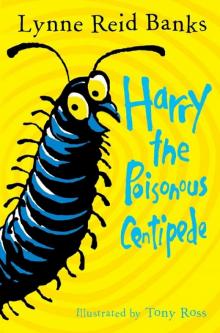 Harry the Poisonous Centipede: A Story to Make You Squirm
Harry the Poisonous Centipede: A Story to Make You Squirm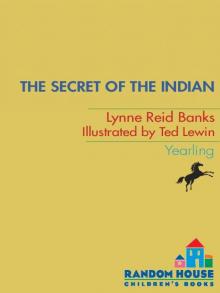 The Secret of the Indian (The Indian in the Cupboard)
The Secret of the Indian (The Indian in the Cupboard)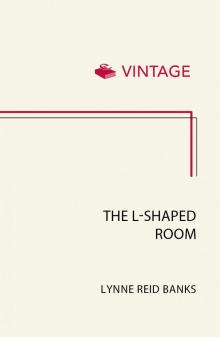 The L-Shaped Room
The L-Shaped Room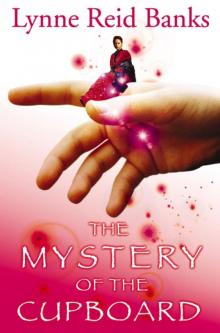 The Mystery of the Cupboard
The Mystery of the Cupboard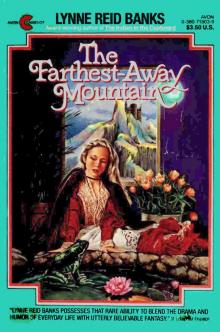 The Farthest-Away Mountain
The Farthest-Away Mountain Harry the Poisonous Centipede Goes to Sea
Harry the Poisonous Centipede Goes to Sea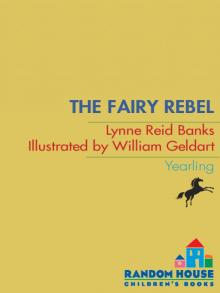 The Fairy Rebel
The Fairy Rebel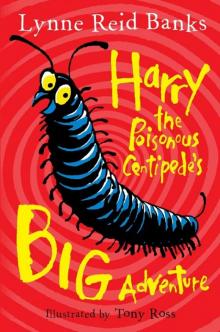 Harry the Poisonous Centipede's Big Adventure: Another Story to Make You Squirm
Harry the Poisonous Centipede's Big Adventure: Another Story to Make You Squirm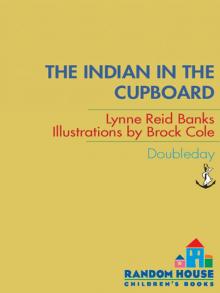 The Indian in the Cupboard
The Indian in the Cupboard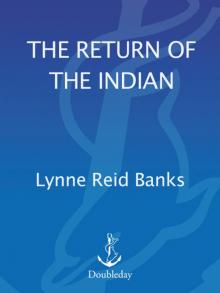 The Return of the Indian
The Return of the Indian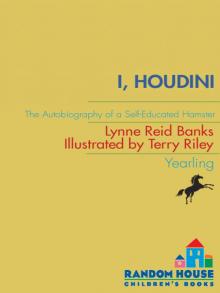 I, Houdini
I, Houdini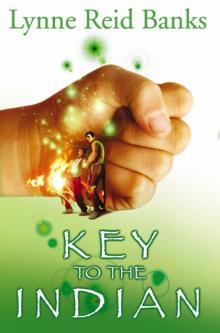 The Key to the Indian
The Key to the Indian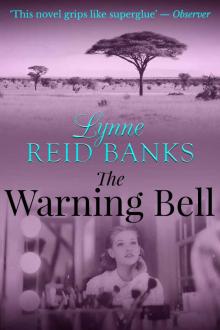 The Warning Bell
The Warning Bell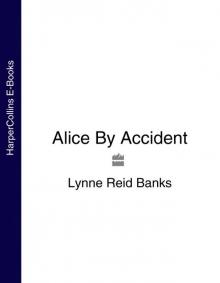 Alice by Accident
Alice by Accident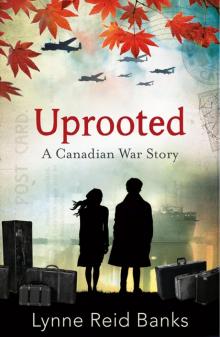 Uprooted
Uprooted Writing On the Wall
Writing On the Wall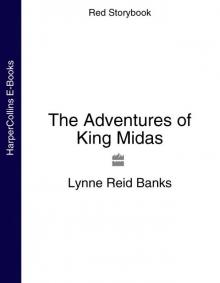 The Adventures of King Midas (Red Storybook)
The Adventures of King Midas (Red Storybook)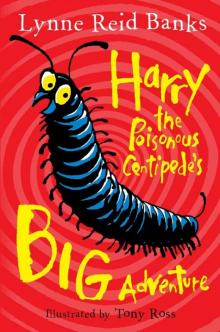 Harry the Poisonous Centipede's Big Adventure
Harry the Poisonous Centipede's Big Adventure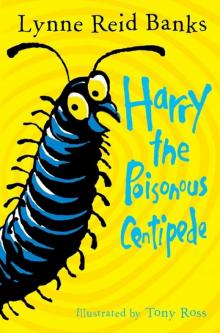 Harry the Poisonous Centipede
Harry the Poisonous Centipede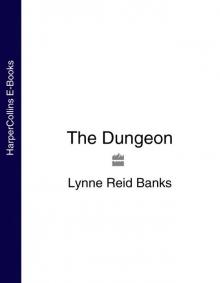 The Dungeon
The Dungeon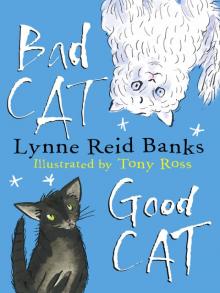 Bad Cat, Good Cat
Bad Cat, Good Cat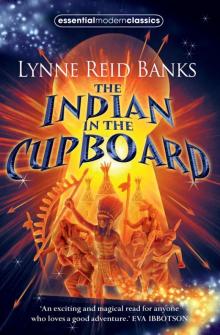 The Indian in the Cupboard (Essential Modern Classics, Book 1)
The Indian in the Cupboard (Essential Modern Classics, Book 1)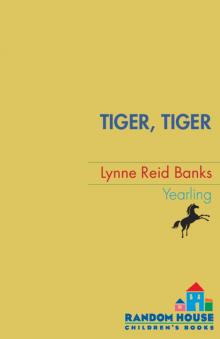 Tiger, Tiger
Tiger, Tiger